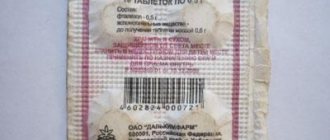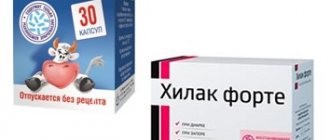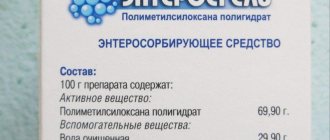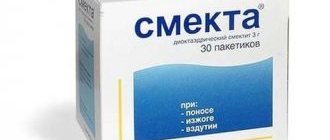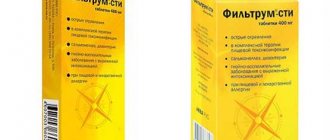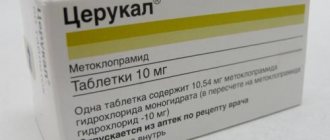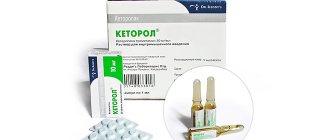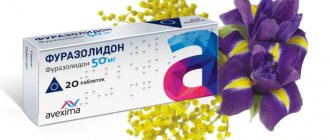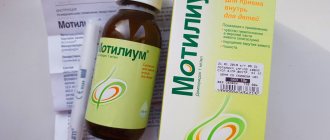Activated carbon is an accessible sorbent aimed at cleansing the body of accumulated toxins and toxic substances. This drug is made from mineral substances, which is why it is considered a completely natural and safe product.
This drug helps with poisoning, diarrhea, and is also used as a prophylactic intended to cleanse the body, but you need to know how to take it correctly and how long it takes for activated carbon to work. In addition, you can use it to whiten your teeth.
Applications of Activated Carbon
Taking the drug for preventive and therapeutic purposes is very common. Due to its low cost, positive reviews and fast action, the drug is the main means that can adsorb harmful substances in the body. Activated charcoal is used for food poisoning, alcohol and drug intoxication. For severe abdominal pain and gas formation, Activated carbon is used - the general instructions for using the drug state that this medicine helps against many types of poisoning.
The main function of Activated charcoal is to bind and remove substances that are potentially harmful to the body (poisons, toxins, heavy metal salts, metabolites of potent drugs). The drug acts only in the gastrointestinal tract, without penetrating the intestinal wall, so it does not cause any toxic effects on the liver, kidneys, central and peripheral nervous system.
Composition of Activated Carbon
The composition of the drug depends, first of all, on the form of its release, as well as on the manufacturer. The content of additional components, fragrances, and flavoring additives is regulated by the company producing the medicine. The classic composition of black activated carbon tablets:
| Substance contained in the drug | Quantity, g |
| Activated carbon | 0,5 |
| Potato starch | 0,25 |
| Sugar | 0,05 |
Release form
Activated carbon is produced in two forms:
- black tablets, uncoated, packed in paper or plastic blister packs of 10 pieces;
- fine powder, packaged in portioned paper bags of 2 grams.
Pharmacodynamics and pharmacokinetics
The medication acts locally in the gastrointestinal tract and is not absorbed into the bloodstream when taken orally. The drug does not form metabolites and is excreted from the body in feces without changing the structure. The transit time through the gastrointestinal tract is about 24-26 hours. The drug has an adsorbent effect (binds gases, metabolites), reduces the absorption of liquids, potassium and magnesium, and vitamins in the small intestine. Promotes the removal of toxins in case of any poisoning, both exogenous and endogenous.
- Baked red fish in the oven
- Comfortable sea water temperature for swimming children and adults
- Nurofen - instructions for use. How to give Nurofen to adults and children in syrup, tablets and suppositories
Indications for use
The medication is taken for flatulence, dyspepsia, excessive secretion of mucus and gastric juice, to stop the processes of fermentation and rotting of food masses in the gastrointestinal tract. Activated carbon - instructions for use indicate that the drug is effective for:
- poisoning with glycosides;
- barbiturate poisoning;
- alkaloid poisoning;
- acute poisoning with heavy metals;
- treatment of intoxication with drugs;
- to reduce gas formation during flatulence;
- any food poisoning;
- treatment of intoxication with poisons;
- gastrointestinal diseases of non-infectious nature;
- stomach ulcers.
The drug Activated charcoal is used for gastric lavage in cases of alcohol poisoning and food intoxication. Woody Activated charcoal quickly cleanses the body, reduces the absorption of harmful substances into the blood. This enterosorbent agent is able to remove toxins in a short time and prevent the negative effects of toxic substances on the central nervous system.
Is it worth using?
Many, having seen the scheme for treating intestinal slagging with charcoal, will ask themselves: “Do I need to waste my energy, stick to proper nutrition, give up alcohol, if I already feel good?”
If you want your hair to shine, your nails to become strong and not gray and broken, your overall well-being to improve, it to become easier to move, all the unevenness and roughness have disappeared from your face, abdominal pain has gone away, gases have stopped tormenting you, especially during important meetings or going to the movies, then you should still think and answer yourself: “yes, it’s worth it.”
How to take activated charcoal
For food poisoning, it is prescribed orally: for adults, one tablet per 10 kg of body weight, for children over 7 years old, half a tablet per 10 kg of body, for newborns and young children - 1/3 of the tablet. It should be taken after meals; it is recommended to wash down the charcoal with clean drinking water. The medication is taken both in courses (for example, to treat allergies) and once (to reduce the concentration of toxins, poisons).
How long does it take for activated carbon to take effect?
The drug in tablet form begins to act 10-60 minutes after administration. The speed of onset of action depends on the acidity of gastric juice, the amount of food taken, the age of the person, and his basic diet. According to clinical studies, the powder form promotes a faster effect of the drug on poisons and metabolites in the intestines.
Instructions for use
Many people ask: how to properly take carbon. Before using the tablets, you should drink a large glass of water. The tablets can be swallowed with liquid, but not with food. The patient can chew the tablets or simply dissolve them in a glass of water.
The patient should take carbon on an empty stomach. Food reduces the effect of charcoal, so it should not be taken with food. Instead of water, the patient can take a sugar or saline solution to enhance the antidiarrheal effect. It is recommended to swallow the tablets. Only for certain disorders can the drug be chewed.
Multi-dose activated charcoal involves administering more than 2 doses of oral activated charcoal to enhance drug removal. The rationale is that wood carbon interrupts the enteroenteric, enterohebric and enterohepatic circulation of absorbed drugs, whereas unabsorbed drugs will be adsorbed onto the activated carbon.
The correct dose of charcoal and method of application have not been fully determined. However, the adult dose is 50 to 100 g per dose, administered at a rate of at least 12.5 g/hour. Lower doses of 10-25 g are used in children. If vomiting occurs (for example, with an overdose of theophylline), intravenous administration of an antiemetic is recommended.
Tablets with active substance
Although charcoal treatment is perceived as simple, inexpensive and safe, it avoids the need for invasive procedures such as hemodialysis and hemoperfusion. Most clinical data are based on case reports, case series, or observational and crossover studies with 6–10 participants per study. Large randomized controlled trials are needed, but the conduct of such studies is challenged by ethical and methodological limitations and considerations.
How should you drink carbon for various diseases? The main recommendations for the use of carbon are summarized as follows:
- High-dose activated carbon should only be administered if the patient has been exposed to a life-threatening amount of carbamazepine, dapsone, phenobarbital, quinine, or theophylline;
- Carbon does not help with poisoning from amitriptyline, dextropropoxyphene, digoxin, digitoxin, dezopyramide, nadolol, phenylbutazone, phenytoin, piroxicam and sotalol;
- The use of charcoal in high dosages to treat salicylate poisoning is controversial. One animal study and 2 of 4 volunteer studies did not demonstrate an increase in salicylate clearance;
- Based on existing experimental and clinical studies, high-dose carbon is not recommended for accelerating the elimination of astemizole, chlorpropamide, doxepin, imipramine, meprobamate, methotrexate, sodium valproate, tobramycin, and vancomycin.
Doctors should prescribe carbon only after carefully assessing the risks and benefits, as carbon may not help patients in some situations.
During pregnancy
The action of activated carbon occurs locally; the suspension of active substances is not absorbed into the bloodstream, so the sorbent does not act directly on the fetus. However, it should be remembered that an excess of the substance helps to reduce the absorption of vitamins and minerals, this can lead to hypovitaminosis and hypocalcemia, which pose a danger to the fetus in the early stages of pregnancy. An overdose of coal is also dangerous because it can cause uncontrollable vomiting and dehydration.
- Normal blood test for platelets
- Raspberry wine at home
- Birch sap at home
General recommendations
Activated carbon is one of the means of choice when providing emergency first aid. This drug, whether black or white coal, cannot be used as a regular remedy for the treatment of digestive problems and hangovers.
The medicine, despite its relatively low cost, has a large number of useful properties.
When used regularly, charcoal binds not only harmful, but also beneficial substances needed by the body (enzymes, vitamins, amino acids). With prolonged use, in order to cleanse the body, you can provoke the development of the habit of constant nausea.
Activated charcoal is contraindicated in the presence of ulcerative lesions, intolerance, intestinal obstruction, the presence of acute inflammation in the intestines, and operations in the gastrointestinal tract.
You can find out how to treat inflammation of the stomach in the article on our website - Inflammation of the stomach: symptoms and treatment.
Any intervention of enterosorbents in this case can only lead to a worsening of the condition.
Interaction with alcohol
The use of Activated charcoal simultaneously with alcohol reduces the concentration of ethanol in the intestines, which leads to a decrease in the absorption of alcohol in the gastrointestinal tract, its metabolites and toxins into the bloodstream. The adsorbent allows you to avoid severe intoxication, helps reduce the effects of alcohol intoxication, and cleanses the body of poisons and ethanol metabolites.
Contraindications to the use of Activated Carbon
Before using the medication, you should consult with a specialist to determine whether there are any contraindications to drug therapy with activated carbon. Main contraindications for use:
- hypersensitivity to the drug;
- allergic diseases;
- ulcerative lesions of the gastrointestinal tract (including exacerbation of gastric and duodenal ulcers, nonspecific ulcerative colitis);
- bleeding from the gastrointestinal tract;
- dysbacteriosis;
- atony of the small intestine;
- simultaneous administration of antitoxic substances, the effect of which develops after absorption from the gastrointestinal tract.
Side effects and overdose
Long-term and uncontrolled use of Activated charcoal preparations can lead to acute hypovitaminosis and impaired absorption of nutrients from the small intestine. In addition, an overdose of sorbent can cause diarrhea, constipation, and uncontrollable vomiting. When hemoperfusion is carried out using coal, hemorrhage, hypothermia, thromboembolism, hypoglycemia, hypocalcemia, and decreased pressure are sometimes observed. A medicine containing a large amount of sorbent can provoke a disturbance of the intestinal microflora and dysbacteriosis.
Terms of sale and storage
Activated charcoal is freely available in Russia and is available from pharmacies without a doctor’s prescription in unlimited quantities. The medication should be stored in a dark, dry place out of reach of small children and pets.
General characteristics of the drug
Activated carbon is produced from coke, it comes in three types - wood, coal and petroleum.
. The highest quality medicine is obtained from nut shells or plant twigs. Charcoal tablets have many open pores, so they well adsorb all toxic substances that enter the body. The medication has a shelf life of 2 years, but if stored properly, it can be used even after the expiration date has expired. Store charcoal in original blisters in a cool, dry place.
Analogs
Medicines with similar effects are widely represented on the pharmaceutical market. However, their common disadvantage is the relatively high cost, a wide list of contraindications and, according to reviews, an unexpressed effect. Main analogues of Activated charcoal:
- Filtrum;
- Polyphepan;
- Polysorb;
- Enterosgel.
Activated carbon price
The cost of the drug depends on the degree of purification of the main active ingredient, the presence of flavoring and aromatic additives. In addition, the price of a medicine in pharmacies depends on the manufacturer and the city in which the medicine is sold. When ordering online, the price of the medicine can be significantly lower. The drug can be ordered for delivery in some online pharmacies.
| Activated carbon release form | Price, rubles |
| Tablets, 10 pcs. | 5 |
| Tablets, 30 pcs. | 68 |
| Powder, 5 sachets | 56 |

